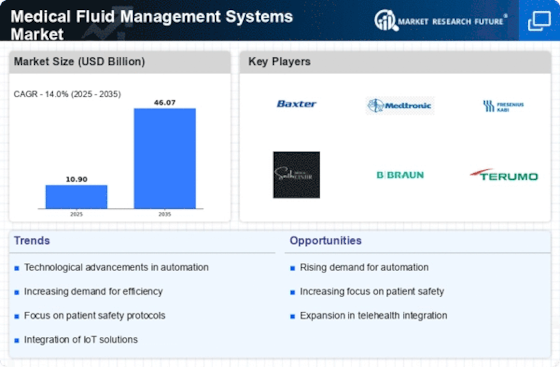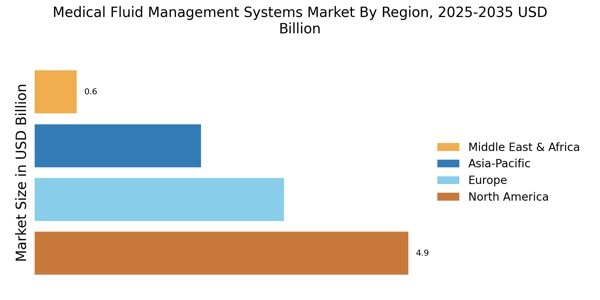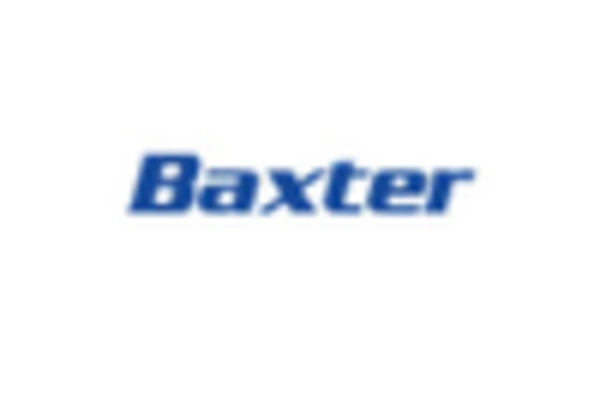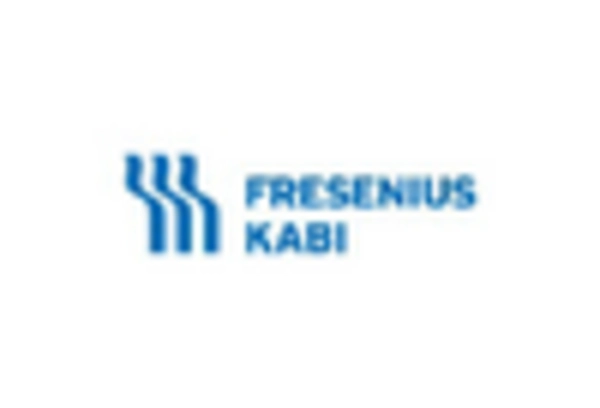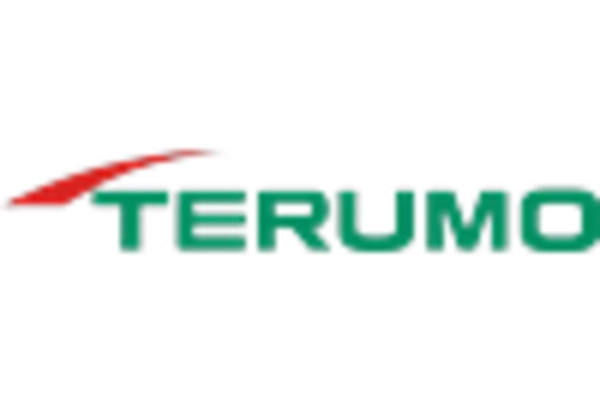Increasing Prevalence of Chronic Diseases
The Medical Fluid Management Systems Market is significantly influenced by the rising prevalence of chronic diseases such as diabetes, cardiovascular disorders, and renal failure. These conditions often require meticulous fluid management to ensure optimal patient care. As the population ages and lifestyle-related health issues become more common, healthcare providers are increasingly investing in fluid management systems to monitor and administer treatments accurately. The market data suggests that the demand for these systems is likely to surge, as they play a critical role in managing the complexities associated with chronic disease treatment.
Focus on Patient Safety and Quality of Care
The Medical Fluid Management Systems Market is increasingly focused on enhancing patient safety and quality of care. Healthcare providers are prioritizing systems that minimize the risk of errors in fluid administration, which can lead to serious complications. This emphasis on safety is driving the adoption of advanced fluid management solutions that incorporate features such as automated alerts and precise dosing mechanisms. As regulatory bodies continue to enforce stringent safety standards, the demand for reliable fluid management systems is expected to rise, further propelling market growth.
Technological Advancements in Medical Devices
Technological advancements are reshaping the Medical Fluid Management Systems Market, leading to the development of innovative solutions that enhance patient care. The integration of smart technologies, such as IoT and AI, into fluid management systems allows for real-time monitoring and data analytics, which can significantly improve clinical decision-making. As hospitals and clinics adopt these cutting-edge technologies, the market is expected to witness substantial growth. Recent estimates indicate that the market could reach a valuation of several billion dollars within the next few years, reflecting the increasing reliance on technology in healthcare.
Growing Investment in Healthcare Infrastructure
The Medical Fluid Management Systems Market is benefiting from growing investments in healthcare infrastructure across various regions. Governments and private entities are recognizing the importance of modernizing healthcare facilities to improve service delivery and patient outcomes. This investment trend is leading to the procurement of advanced medical equipment, including fluid management systems. As healthcare facilities expand and upgrade their capabilities, the market for these systems is likely to experience robust growth. Projections indicate that this investment surge could result in a significant increase in market size, reflecting the ongoing commitment to enhancing healthcare services.
Rising Demand for Efficient Healthcare Solutions
The Medical Fluid Management Systems Market is experiencing a notable increase in demand for efficient healthcare solutions. This trend is driven by the need for improved patient outcomes and streamlined hospital operations. As healthcare facilities strive to enhance their service delivery, the adoption of advanced fluid management systems becomes paramount. According to recent data, the market is projected to grow at a compound annual growth rate of approximately 8.5% over the next few years. This growth is indicative of a broader shift towards automation and precision in medical practices, which is essential for managing complex patient needs effectively.


